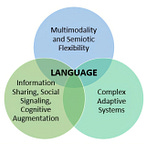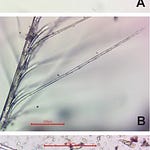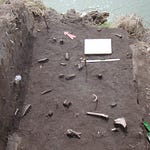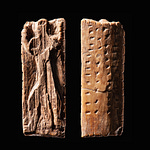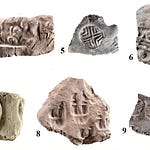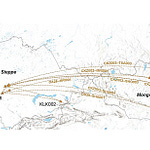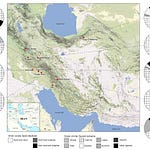Rethinking an Inherited Framework
More than six decades ago, the linguist Charles Hockett attempted to capture the essence of human language by listing its defining traits. His “design features” became a kind of catechism for generations of students: arbitrariness, productivity, displacement, duality of patterning, and so on. For a long time, the list felt sturdy, even elegant.
But today, those features read less like laws of nature and more like artifacts from a period when the world of communication was only dimly understood. Research spanning sign languages, animal behavior, neuroscience, and artificial intelligence has transformed what scholars know about how languages form, evolve, and operate.
A new paper1 by Marcus Perlman, Michael Pleyer, Limor Raviv, and colleagues argues that sticking to Hockett’s list misses the real story. Their work proposes a shift away from categorizing language as a set of discrete properties and toward understanding it as a dynamic system shaped by social coordination, cultural evolution, and the human body.
“The structure of language cannot be separated from the social worlds that sustain it,” says Dr. Elena Rossi, a cognitive anthropologist at Cambridge University. “Any framework that treats language as a fixed blueprint obscures the forces that continually reshape it.”


